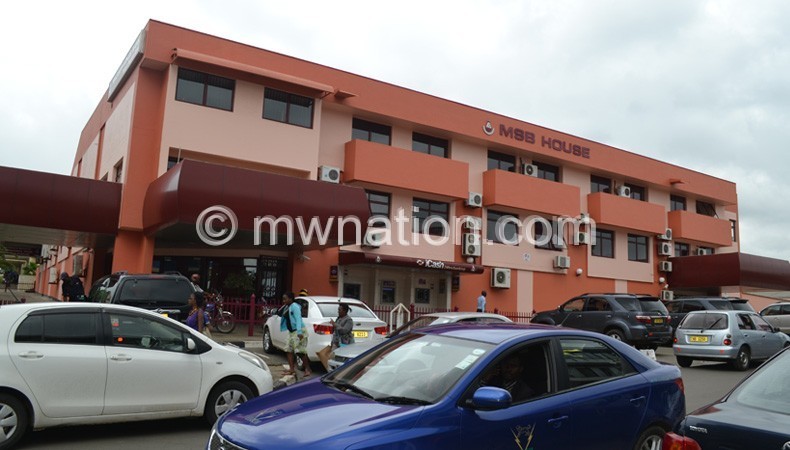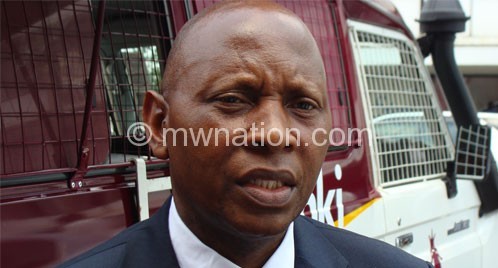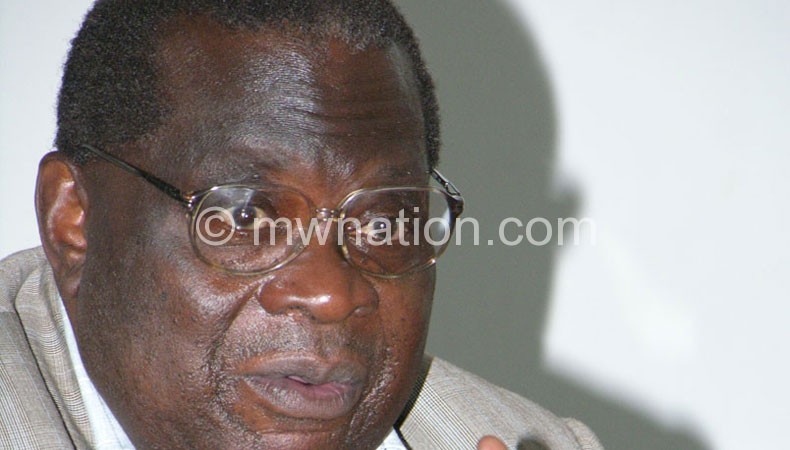MSB exclusive: Bank needs K23.7bn to survive
- Loans to ‘politically exposed’ people hit it hard
- Needs K23.7bn to survive
- Amount too huge for govt—Gondwe
————————————-
Bad loans to “people who are politically exposed”, politically driven government programmes and adventures dumped on it as well as regulators’ prolonged tolerance are reasons Malawi Savings Bank (MSB) is on its knees, documents show.

Consequently, the struggling wholly owned State commercial bank needs at least K23.7 billion (about $47.4m) in capital and liquidity by June this year or risk shutting down, according to Reserve Bank of Malawi (RBM) documents we have seen.
But given its liquidity position that fails the stress test and a weak capital base that makes it a misfit in the current Basel II financial prudence regulatory compliance regime, the K23.7 billion is money that even MSB says it cannot raise within the prescribed period.
Apparently, neither can the bank’s sole shareholder—government, a position that has now forced Capital Hill to reluctantly put up the bank, or part thereof, for sale to private investors as The Nation first reported last Friday.
In interview on Wednesday, Minister of Finance, Economic Planning and Development Goodall Gondwe said while government was willing to bail out MSB, the amount of money required for the exercise was “quite high”.

Said the minister: “Government is going through a difficult situation at this moment and we cannot manage to give the bank the amount of money they are looking for.”
—Hunt for new partner—
Gondwe said government was trying to bring in a strategic partner—preferably a local investor—to save it from closure.
The poor quality of the bank’s loan book—comprising large non-performing accounts—are tying up liquidity and eroding capital by way of loan loss provisions and suspension of interest, according to a contextual background to the crisis that MSB prepared for its shareholder that a Treasury source showed us.
“Most of these non-performing loans relate to people who are politically exposed,” reads the brief by the MSB board to Gondwe titled ‘The Current Financial Performance of Malawi Savings Bank Limited and its Challenges on Capital Adequacy and Regulatory Compliance Issues’.
Of the bank’s more than K7 billion toxic assets—roughly 30 percent of the loan book—Mulli Brothers Limited (MBL) Holdings accounts for the single largest K4.6 billion or nearly 66 percent of the non-performing loans despite the loans being “secured”.
MSB now wants government to help it get its money from MBL Holdings.
States the brief to the minister: “Management and the board have come across information to the effect that this client [MBL] was awarded some large sums of money on cases which the client won against government. In addition, [MBL] undertakes contracts with government for the supply of goods and services.

“The board of the bank would like to seek the indulgence of government to pay proceeds from the above through the bank. Where feasible, the bank would be in a position to fund some contracts, which the client may secure with government on the understanding that proceeds would go towards reducing the client’s exposure.”
MBL is contesting the MSB loan figures in court, saying they are exagerated.
—Other toxic loans—
A well-placed Treasury source said following close on the list of toxic assets after MBL is Smallholder Farmers Fertiliser Revolving Fund of Malawi (SFFRFM) at K3 billion for fertiliser procurement.
Apart from MBL and SFFRFM, other non-performing loans are those MSB extended to government-owned institutions and departments to finance “strategic transactions relating to student loans; procurement of maize through Admarc and deployment of a Malawi Defence Force [MDF] peacekeeping mission to Ivory Coast”.
Other bad loans, according to the documents, went to the Malawi Broadcasting Corporation (MBC), the liquidated Air Malawi, the Youth Enterprise Development Fund (Yedef) and the University of Malawi (Unima).

In one of its briefing papers, MSB explained that government’s Promissory Notes as commitment to pay debts owed by the public agencies and departments by way of instalments over five years, has not helped matters.
Explained the bank: “At a time these exposures were being converted into Promissory Notes, a loan portfolio amounting to K6 billion was hived off from the bank’s books.
“The conversion resulted in reduced earning margins, postponement of income, impairment loss recognition and holding up of liquidity.”
These bad loans linked to government bodies, said RBM Governor Charles Chuka in a letter to Secretary to the Treasury (ST) Ronald Mangani, have undermined Capital Hill’s ability to be “a fit and proper shareholder” in the financial system and have made it hard for the central bank to properly execute legally mandated responsibilities.
In the letter dated October 24 2014, Chuka, referring to a letter Mangani had written to RBM, said MSB’s liquidity gap has reached this level because of the past “forbearance” by the registrar of financial institutions and the poor quality of the loan book.
“You will also recall that recently government bailed out MSB with K6.4 billion in Promissory Notes as a result of bad loans to SFFRFM, Admarc, MBC, Air Malawi, MDF, Yedef and University of Malawi,” reads part of the letter.
—Recapitalisation—
Chuka explained that to ensure continued operations, government or the buyer/investor needs to inject into MSB a minimum of K23.7 billion—with K5.8 billion as recapitalisation which may enable it to meet Liquidity Reserve Requirements (LRR) plus K17.9 billion to close the liquidity gap.
As at the end of August 2014, the bank’s liquidity position stood at 15.7 percent—just above half of the required 30 percent according to Chuka.
“This gap constitutes the resources that government will have to make available to cover depositors’ funds should MSB experience a run or is closed down,” he said.
What these liquidity problems mean is that buyers or investors would need to pump in K23.7 billion in addition to any purchase price that maybe agreed upon.
“Government or the investor should also expect to sustain MSB’s capitalisation and liquidity in future, especially as MSB assets book grows and as Malawi moves to Basel III. I must hasten to add that the adoption of international supervisory standards is not something a country can afford to put off for too long if its banks are to participate in international business,” said Chuka in the letter.
When contacted by telephone on Tuesday, Chuka refused to shed more light on his next steps if MSB failed to comply.
“You do not ask a regulator what to do or what it is going to do with banks,” he said.
But, according to RBM sources, Chuka is not the kind of character that will flinch from shutting down MSB, given that last year the central bank filed with the Minister of Finance to close down MSB if it failed to meet all supervisory and regulatory requirements by the deadline of January 2014 in line with the Basel II platform.
The bank was only saved after, prior to the deadline, the ST told RBM that government would sell or invite a strategic partner into MSB to abide by the regulatory requirements.
“Chuka is a no-nonsense Governor. He will close it if they do not comply,” said the RBM source.
MSB has been asking the regulator for more time to sort itself out.
In a letter to the Governor dated December 4 2014, MSB chief executive officer Ian Bonongwe, who has since been seconded to the Office of the President and Cabinet (OPC), pleaded for leniency and RBM’s consideration for the bank to stagger its LRR compliance.
Bonongwe asked for a waiver from January 1 2015 to June 30. But, he said, from July 1 to December 31 2015, the bank would achieve 50 percent compliance while from January 1 to June 30 2016 reach 100 percent compliance.
“With the above proposed time frame, management believes that the shareholder would have taken a decision on recapitalisation and that recoveries on account of Mulli Brothers Limited shall have taken effect and that significant repayments on the Promissory Notes will have been received,” reads part of the letter.
But given government’s decision to dilute its shareholding, it looks like Bonongwe’s plea may not have impressed Chuka.






This is a case of a bad owner and bad debtors. This lost money would have been of more and better use if small scale businesses were given loans to run their businesses. How do you give loans to government to give loans to institutions that are themselves incapable of doing business?